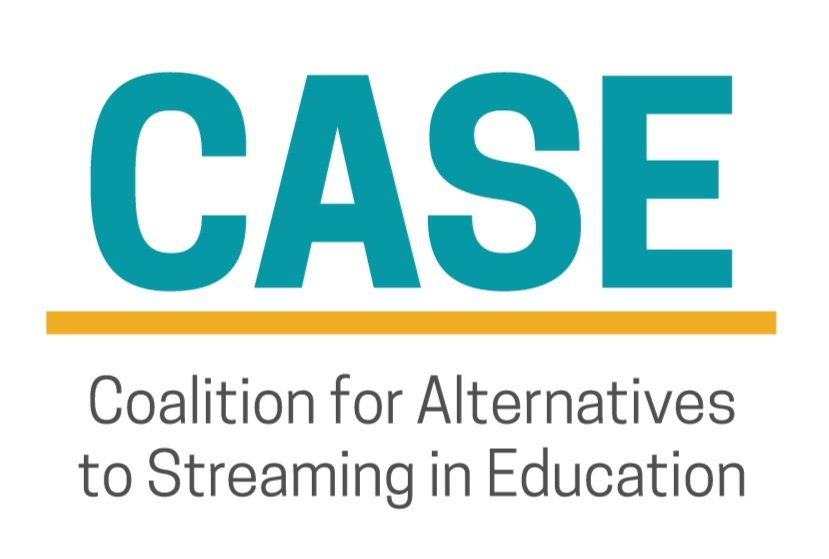Statement of Solidarity with Indigenous Communities
June 25, 2021
The Coalition for Alternatives to Streaming in Education (CASE) stands in solidarity with Indigenous communities as we join in mourning the Indigenous children found in mass and unmarked graves. Our goal to end academic streaming in Ontario arises from a deep commitment to create an equitable education system that reflects its students, meets their needs, and provides a learning environment in which all can thrive. However, we recognize that despite these aspirations for our schools and progressive steps toward meeting them, Canadian educational institutions remain rooted in a legacy of settler-colonialism and white supremacy.
Such systems shape how marginalized students experience schooling, how they are perceived as learners, and are subsequently streamed throughout their school life. Systemic racism, classism, and ableism disrupt the success and career opportunities of many students –– particularly those who are Indigenous, Black, racialized, low-income and have a disability. As made evident in the aftermath of the Residential School System, this leaves lasting and harmful impacts on communities for generations to come.
CASE supports efforts to amplify the voices of Residential School survivors and share resources that reveal the connections between the Residential School System and our present public education system. We strongly support calls from Indigenous leaders and activists for justice and will continue to advocate for effective strategies to ensure equity in education. This includes curriculum reform, training and accountability for teachers, administrators and trustees and inclusive education policies within an anti-racism and anti-oppression framework.
In addition to our six recommendations to end streaming successfully, we will now add a seventh that speaks to education priorities identified in the Truth and Reconciliation Commission’s Calls to Action.
We are committed to working alongside Indigenous educators, communities and students to build an equitable education system that allows all students to reach their full potential.
Our 7th Recommendation:
Education equity for all students in Ontario can only be achieved by implementing the Truth and Reconciliation Commission of Canada’s Calls to Action. In partnership and collaboration with Residential School Survivors, Indigenous peoples, and educators, the provincial government must:
Develop and implement a comprehensive K-12 culturally responsive curriculum with mandatory content on Indigenous history and the legacy of residential schools;
Provide funding to train and educate teachers on integrating Indigenous knowledge within classrooms; and
Ensure Indigenous language courses are available in elementary and secondary schools.
The federal government must:
Eliminate the discrepancy in federal education funding for First Nations children being educated on reserves and those First Nations children being educated off reserves and end the funding backlog for First Nations students seeking a post-secondary education;
Draft new Indigenous education legislation with the full participation and informed consent of Indigenous peoples; and
“Develop with Aboriginal groups a joint strategy to eliminate educational and employment gaps between Aboriginal and non-Aboriginal Canadians.”
Those who need support:
National Indian Residential School Survivors and Family Hotline
1-866-925-4419
The Indian Residential Schools Crisis Line is available 24-hours a day for anyone experiencing pain or distress as a result of their Residential school experience.
